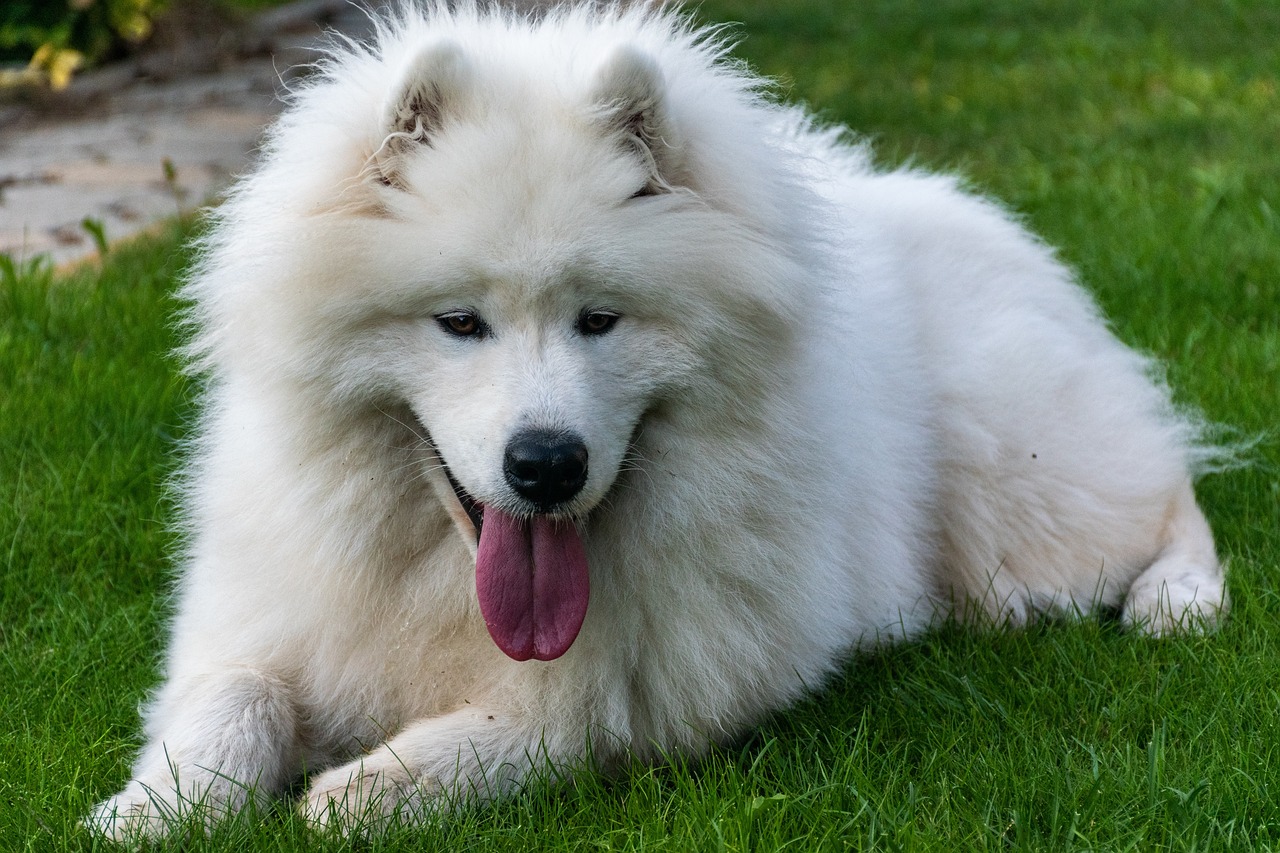Samoyeds are known for their smiling faces and fluffy white coats. Originating from Siberia where they were used for herding and pulling sleds, these dogs have a good amount of energy and endurance. In this article, we will explore the ideal amount and type of exercise that keeps a Samoyed healthy and happy.
1. Understanding Samoyed Exercise Requirements
Samoyeds typically need between 30 minutes to an hour of exercise daily. This should be a mix of physical and mental activities to match their working breed heritage.
2. The Importance of Physical Exercise for Samoyeds
Regular exercise is crucial for maintaining the Samoyed’s physical health, preventing weight gain, and keeping their thick coat in good condition. It also helps to mitigate potential behavioral issues.
3. Appropriate Types of Exercise for Samoyeds
Samoyeds excel in activities such as brisk walks, running, and playing in the snow. They also enjoy structured activities like agility, obedience, and even pulling sports, given their history as sled dogs.
4. The Role of Mental Stimulation in Exercise
Mental stimulation is key for this intelligent breed. Integrating training sessions into their exercise routine, such as learning new commands or tricks, can keep their minds active.
5. Socialization Through Exercise
Samoyeds are friendly and social dogs who often enjoy the company of other dogs and people. Group walks or playdates can be a great way to provide both exercise and social interaction.
6. Tailoring Exercise to Your Dog’s Age
The exercise needs of a Samoyed will change over time. Puppies require short, frequent play sessions, while adults can handle more vigorous activities. Senior dogs may need gentler, less strenuous exercise.
7. Weather Considerations for Exercising Your Samoyed
Samoyeds are well-adapted to cold weather and may require special consideration when exercising in the heat. Ensure they have access to shade and water, and avoid the hottest parts of the day.
8. Recognizing the Signs of Adequate Exercise
A well-exercised Samoyed typically has a relaxed demeanor, shows no destructive behavior at home, and maintains a healthy weight. They should also display eagerness for their exercise sessions.
9. The Importance of Consistency in Exercise
Consistent exercise helps Samoyeds manage their energy levels and maintain a routine. A predictable schedule can be very reassuring and helps prevent anxiety.
10. Monitoring Your Dog’s Health Through Exercise
Observing your Samoyed’s reaction to exercise can be an indicator of their overall health. Any changes in stamina, breathing, or gait should be discussed with a veterinarian.
Conclusion
Regular, well-rounded exercise is essential for the well-being of a Samoyed. A balance of physical activities and mental challenges, tailored to the dog’s age and health, will ensure your Samoyed remains a joyful and integral member of your family. Consult with a veterinarian or a canine exercise specialist to create an exercise program that is appropriate for your Samoyed’s specific needs.
Frequently Asked Questions About Exercising A Samoyed
1. How much exercise do Samoyeds need?
Samoyeds require a moderate amount of exercise, generally about one hour per day. This can be split into two sessions of physical activities such as walks or playtime to accommodate their energy levels and need for mental stimulation.
2. What type of exercise is best for Samoyeds?
The best exercises for Samoyeds often involve activities that engage both their body and mind, such as long walks, jogging, play sessions with interactive toys, and agility training. They were bred for cold climates and pulling sleds, so they also enjoy activities like pulling carts or sleds in the snow.
3. Can Samoyeds participate in agility training?
Yes, Samoyeds can excel in agility training. It’s an excellent way to provide them with the physical exercise and mental stimulation they need, and it taps into their intelligence and agility.
4. Are Samoyeds good running partners?
Samoyeds can be good running partners for short to moderate distances, especially in cooler weather. However, care should be taken in warm weather, as their thick coats can cause them to overheat.
5. How can I tell if my Samoyed is getting enough exercise?
A well-exercised Samoyed will be relaxed and settled at home, maintain a healthy weight, and exhibit a good appetite. If they become restless, destructive, or start to gain excess weight, it may be a sign they need more physical activity.
6. What indoor exercises are suitable for Samoyeds?
Indoor exercises suitable for Samoyeds include playing hide and seek, tug-of-war, and fetch with soft toys. You can also set up mini agility courses or teach them new tricks for mental stimulation.
7. How do I exercise my Samoyed during the hot summer months?
During hot weather, exercise your Samoyed in the cooler early morning or evening hours. Keep sessions shorter, provide plenty of water, and avoid strenuous activity to prevent overheating.
8. Do Samoyeds like to swim?
Some Samoyeds enjoy swimming, which can be a great way to cool off and get exercise without putting stress on their joints. Always supervise them in the water to ensure their safety.
9. What signs should I watch for to avoid over-exercising my Samoyed?
Watch for signs of over-exertion such as excessive panting, reluctance to move, or lagging behind during walks. Samoyeds may not always show when they’re tired, so it’s important to monitor their behavior during and after exercise.
10. How should I adjust exercise routines as my Samoyed ages?
As Samoyeds become older, they may require less intensive exercise. Gentle walks, short play sessions, and activities that are easy on the joints, like swimming, are ideal for maintaining their health and mobility.

 Toledo, United States.
Toledo, United States.